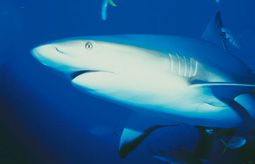While the horse meat scandal brought food fraud to the attention of European consumer, it’s vegetable oil that can easily be counterfeit or tampered and is thus highly targeted by criminals, say police.
Over four months from November 2015 to February 2016) across 57 countries, a Europe-wide operation, OPSON V resulted in the total seizure of 11,131.18 tonnes, 1.4 million litres and 5.5 million units of either counterfeit or substandard food and beverages as a result of checks carried out at shops, markets, airports, seaports and industrial estates.
A Europol-Interpol report presented the results of OPSON V, which saw the largest seizure of counterfeit or substandard food and beverages to date, the policing bodies say.
The biggest seized category in food products is condiments, representing 66pc of the seizures reported in tonnes. It includes commodities such as vegetable oils, vinegar, salt, pepper, spices, variety of sauces and seasoning products. 20 countries out of the 57 participating countries reported seizures of this type of products. In Italy for example, 7,000 litres of alleged extra virgin olive oil were seized, and Thailand reported the seizure of 423,000 litres of smuggled palm oil.
Why do that? The authorities point out that if olives are immersed in copper sulphate concentrated solutions, they are “painted” (as fraudsters say in jargon) to get an intense green colour. That makes the product more attractive to consumers. Fraudsters get a much more intense and uniform colour on all fruits, to command a higher price; and they can recycle olives produced in previous years which had lost their original colour, again to earn a higher price.
Fruits and vegetables are the second most affected category. Alcohol remains a high risk product, with more than 385,000 litres seized in all areas. In the UK, authorities recovered nearly 10,000 litres of fake or adulterated alcohol including wine, whisky and vodka.
Despite the totals, the policing bodies point to concerns – some countries would not cooperate, and in others ‘communication between LEAs, Food Agencies and private companies remains challenging’ according to the report. Companies taking part included Danone Group, Diageo plc, Ferrero Spa, GlaxoSmithKline; Mars, Moët Hennessy and Nestlé; and Red Bull and the Scotch Whisky Association.
Definitions
A counterfeit food product is defined as a food product infringing an Intellectual Property Right; while a substandard food product is defined as a product which does not meet the criteria required by European and national laws for its production, packaging, storage and distribution. The report set out the diversity of food fraud (covering from chewing gum, adulterated honey and sugar, to dietary products wrongly labelled as ‘sugar free’ or ‘calorie free’, to sparking wine) and the types of risks.
For the 49-page report in full, visit the Europol website.
For more on UK food fraud – the latest on the food crime unit at the Food Standards Agency – see the November 2016 print issue of Professional Security magazine.
The countries taking part in Opson V were: Albania, Argentina, Australia, Austria, Belarus, Belgium, Bolivia, Bosnia and Herzegovina, Bulgaria, Burundi, Colombia, Comoros, Côte d’Ivoire, Croatia, Czech Republic, Denmark, Ecuador, Eritrea, Estonia, Fiji, Finland, France, Germany, Greece, Hungary, Iceland, Indonesia, Ireland, Italy, Jordan, Kenya, Latvia, Lithuania, Luxemburg, The Netherlands, Nigeria, Norway, Peru, Portugal, Romania, Russia, Rwanda, Seychelles, South Korea, South Sudan, Spain, Sudan, Sweden, Tanzania, Thailand, Togo, Turkey, United Kingdom, Uruguay, USA, Vietnam and Zambia. Opson began in 2011 with ten countries.










